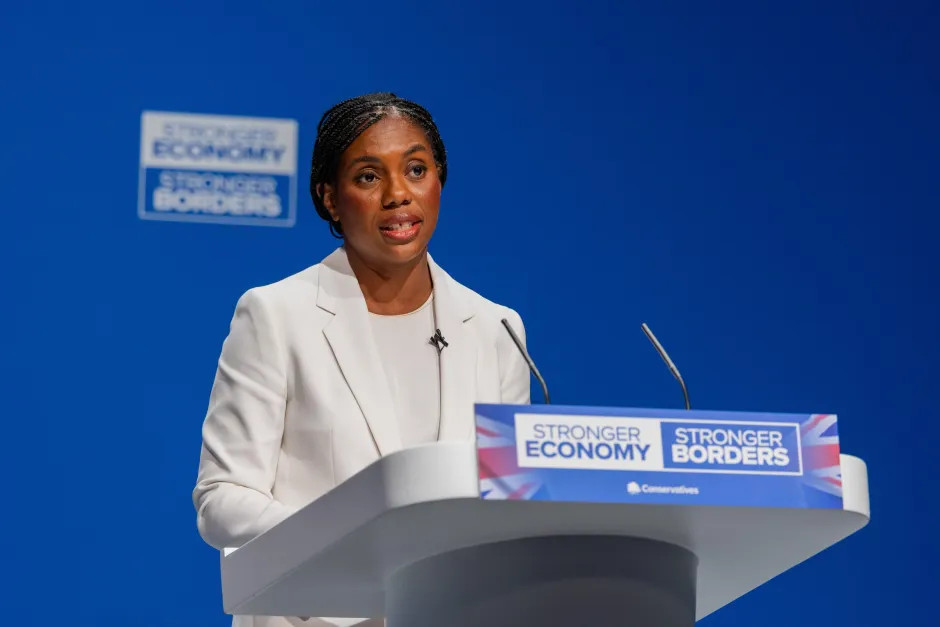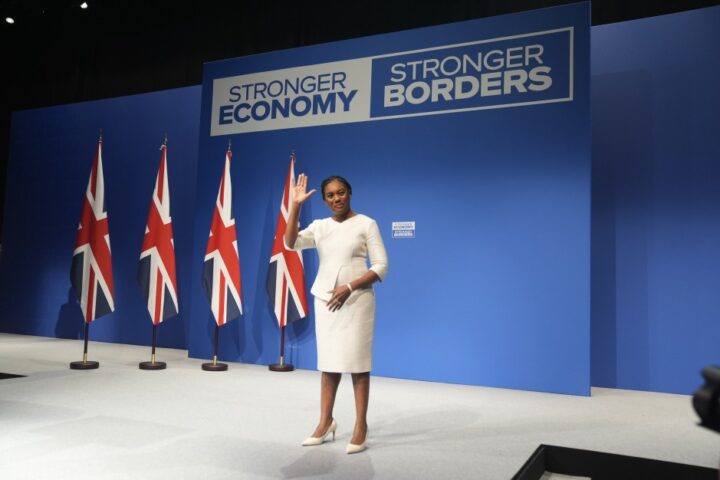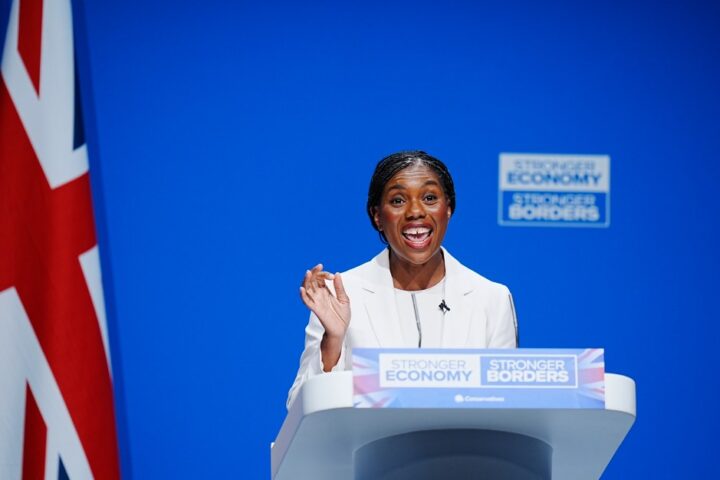Kemi Badenoch has dismissed calls for an electoral pact with Nigel Farage’s Reform UK party, asserting her position as the “best person” to lead the Conservatives. This statement comes amid a poll indicating that nearly two-thirds of Conservative members support a coalition with Reform, reports BritPanorama.
The Conservative leader, addressing the party conference in Manchester, stated, “I’m not splitting the right. There is no deal to be done with Reform.” Badenoch emphasized her commitment to fiscal responsibility, contrasting her party’s approach to Farage’s proposals, which she described as advocating for increased welfare and nationalization.
This backlash follows Reform UK’s recent claims of gaining support through a number of councillor defections, while some Conservative MPs urge for unity among right-leaning factions to avert what they term the “calamity” of another Labour government. Shadow Foreign Minister Andrew Rosindell highlighted the potential benefits of a coalition.
Badenoch firmly rejected the notion of collaboration, questioning the rationale for an alliance with Reform. “The only thing that they have in common with us, really, is around immigration. We know that we need stronger borders, but we’ve got a plan that will work,” she stated. She criticized Reform’s plans as derivative of Conservative initiatives, lacking the necessary details.
The poll also revealed that around half of Conservative members believe Badenoch should not lead the party into the next election, with 64 percent supporting a deal with Reform. In response, the Tory leader reiterated her conviction that her party can achieve a “stronger economy and stronger borders.”
She remarked, “If I thought someone else could do it, then I’d be taking a step back. I think that I’m the right person and I’m the best person.” Badenoch asserted that party members were pleased with the proposals introduced at the conference, including plans to depart from the European Convention on Human Rights and reduce public spending by £47 billion.
Additionally, she rebuffed suggestions that the conference had failed to match the vibrancy of past gatherings, recounting her engagement with enthusiastic young Conservatives during the event. “I think that we’ve been having a very good conference,” she said, despite fewer exhibition stands and reduced attendance in the main hall.
Badenoch concluded by expressing pride in a conference that felt authentic to its members, amidst a backdrop of previous gatherings that were seen as dominated by corporate interests.”














